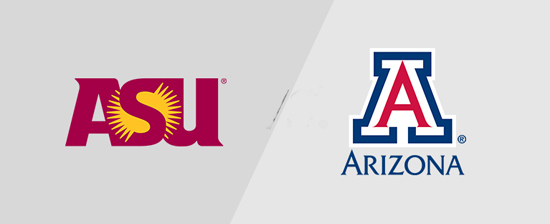By Jim Small | Arizona Center for Investigative Reporting
The state’s two largest public universities have for years been represented at the state Capitol by powerful lobbying firms, though neither Arizona State University or the University of Arizona has records of hiring a contract lobbyist.
Instead, each school’s nonprofit foundation has contracted directly with outside lobbyists to advocate at the Legislature on behalf of the schools. Neither university foundation responded to detailed questions about the nature of the relationship between it and the lobbying firms, and neither would provide a copy of its contract with the lobbyists hired to represent a public body.
As a result, it is impossible for the public to know how much lobbying firms are being paid to represent the interests of public universities.
Arizona public records law does not require university foundations to disclose donors or expenditures, aside from the information required to be made public by federal tax laws governing 501(c)(3) nonprofits. Annual 990 forms require only summary figures for broad categories of income or expenses.
Foundations are free to disclose more than is required by law.
The university foundations were created to raise money from private individuals and corporations in order to supplement the state funding and tuition revenue the universities receive. By acting through a foundation, a university can receive, spend, and invest funds directly, bypassing university governance procedures and the restrictions that would normally apply to state appropriations and to state procurement.
To add accountability to foundation spending on a public institution, California, Colorado, and Connecticut make their public university foundations subject to the same open records laws as public agencies in those states because of their close affiliation with the universities, even though they are nonprofit organizations.
Rep. Vince Leach, R-Saddlebrooke, said secrecy is the obvious reason why universities would give their foundations the responsibility of hiring lobbyists.
“I think that’s by design,” he said. “If you’ve got a private arm, and you want to (make) something not subject to open records, you can put it in the foundation, and it goes away.”
The foundations also aren’t subject to the procurement laws that the universities have to follow. In the case of lobbyists, the foundations can hire a company without soliciting multiple bids or following the rigorous procurement interview and evaluation process, all of which would be subject to Arizona’s public records law.
 State lobbying records show that ASU had registered Willetta Partners as the school’s lobbyist for compensation since 2010. Likewise, U of A registered Copper State Consulting Group as its lobbyist for compensation from 2009 until July 2017.
State lobbying records show that ASU had registered Willetta Partners as the school’s lobbyist for compensation since 2010. Likewise, U of A registered Copper State Consulting Group as its lobbyist for compensation from 2009 until July 2017.
In response to public records requests seeking information on those lobbying contracts, both universities told AZCIR they had no record of ever having signed contracts with the companies who represent them at the Capitol.
ASU did not respond to multiple requests for comment about its relationship with Willetta Partners. ASU Enterprise Partners, the parent organization of the ASU Foundation, confirmed that it has contracted with Willetta Partners since 2013.
Prior to 2013, Willetta Partners was known as Upstream Consulting, and that firm represented ASU at the state Capitol.
ASU Foundation has never registered a lobbyist and ASU Enterprise Partners had no lobbyists registered until February 2017, when it hired Veridus to push for infrastructure funding that was proposed by Gov. Doug Ducey and supported by all three state universities. ASU’s nonprofit arm ended its contract with Veridus in May, after the legislative session ended.
That same day, it registered Willetta Partners as its lobbyist.
The lobbying expenses that ASU Enterprise Partners disclosed on tax returns were the subject of scrutiny in an AZCIR report in July. At that time, the foundation said the money categorized as lobbying on federal tax forms wasn’t spent to directly influence elected officials, but was instead aimed at awareness campaigns intended to boost public support of education initiatives the foundation and ASU supported.
In the 2015-16 tax year, ASU Enterprise Partners reported spending almost $425,000 on lobbying efforts. It also listed the entire amount as spent on “influenc(ing) a legislative body.” Since 2011, ASU’s foundation has spent roughy $1.4 million on lobbying, according to tax filings.
U of A Vice President of Communications Chris Sigurdson confirmed that the University of Arizona Foundation hired and paid Copper State Consulting Group and Molera Alvarez, which has represented the school since 2003, but could not provide details on the nature of the contracts.
The University of Arizona Foundation has never registered a lobbyist with the Arizona Secretary of State’s Office.
In the 2014-15 tax year, the most recent year for which filings are available, University of Arizona Foundation reported spending $4,200 on lobbying legislative bodies. In prior years, it spent between $63,000 and $72,000 annually.
The University of Arizona Foundation did not respond to a request for comment.
Sigurdson said U of A has its foundation contract with outside lobbyists so that the school doesn’t spend either tuition money or funds appropriated from the state to lobby on state policy matters. He said the foundation pays directly for the lobbyists instead of reimbursing the university for the cost “because it’s more efficient.”
“The Foundation exists to help the UA,” he said in an emailed response to questions.
He said the lobbyists “serve at the discretion and direction” of Tim Bee, the school’s vice president for government and community relations.
He said the contract lobbyists are accountable to Bee, and that the university has “the ability to end the relationship” with a lobbyist, but he could not explain how a university employee could terminate a lobbyist’s contract with an ostensibly independent nonprofit foundation.
Both ASU and U of A have robust teams of lobbyists on staff.
In January, former Congressman Matt Salmon became ASU’s vice president for government affairs. State records show that ASU has four other registered lobbyists who work full-time for the university, not including ASU President Michael Crow.
Likewise, U of A has three full-time lobbyists on staff, not including U of A President Robert Robbins and a senior vice president who oversees the schools government relations office, in addition to other duties.
Northern Arizona University does not use contract lobbyists, and state records show that the school has not done so since 1997. NAU relies on its in-house lobbyists to represent the school at the Capitol.
The Arizona Secretary of State’s Office said both university foundations are not complying with state laws that require any person or organization “that employs, retains, engages or uses” a lobbyist to register and disclose who that lobbyist is, even if that lobbyist is being hired to represent another entity.
“The law requires principals to report who they’ve hired to advocate for them,” said Assistant Secretary of State Lee Miller. “If an organization is paying for a lobbyist, that almost certainly makes them a principal.”












